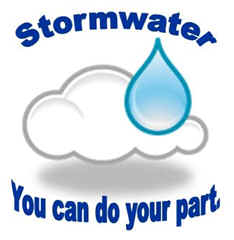
Buses Replace Street Cars 1948-1949 Pictured Above |
||
|
Benwood Storm Water Management |
||
|
|
What is
Storm Water
|
|
|
Storm water is pure rainwater and anything the rain carries along with it. In urban areas, rain that falls on the roof of your house, or collects on paved areas like driveways, roads and footpaths and is carried away through a system of pipes that are separate from the sewage system. Storm water is not treated like sewage. In some cases it is filtered through traps, usually located at the end of the pipe system, but it still flows directly from streets and gutters into our rivers, the harbor and the ocean. Straight from your street to waterways inhabited by fish, frogs and other aquatic animals and plants. |
||
Why
Manage It?
|
||
|
If
you live near a waterway or often spend time in or near the water you are
probably familiar with what happens after rain. Polluted storm water
spreading out into the surrounding clean water can be clearly seen because
of a muddy color and often carries litter with it. You may be advised not
to swim for a couple of days, because the pollution carried along with the
rainwater may pose a significant health risk. Storm
water pollution can be controlled if everyone plays a part in managing the
drains in the streets where they live and work. If you look after your
local drains, you can dramatically improve what happens in the harbors, on
the beaches and in the rivers. The most effective way to reduce storm
water pollution is to stop the pollution from entering the system in the
first place. |
||
|
|
What Causes Storm Water Pollution? |
|
|
Storm
water runoff is excess water
that can not be absorbed, or that flows
off impervious areas such as streets, parking lots, roofs and other hard
surfaces. This runoff enters Benwood's storm
water drainage system, where it is carried
to the Ohio River. Along the way, storm water runoff picks up |
||
Do's
and Don'ts
|
||
Do |
Don't |
|
|
|
|
|
|
City
of Benwood Storm Water Report Line
(304)
232-4320
|
|
Please call if
you notice any of the following:
|
||
|
||
The following
links provide access to more information about Storm Water Management:
|
||
|
Home /Businesses/City Hall /Police Department/News
This web site was created
by: mmldesign All rights reserved. |
||


